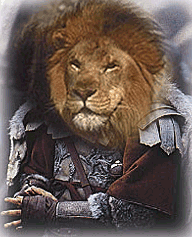 Political issues often thwart rapid advancement. Organizations by their very nature are political. How can you identify and characterize stakeholder traits that need to be addressed or accommodated if, as a leader, you wish to exercise influence and be more effective within an organization?
Political issues often thwart rapid advancement. Organizations by their very nature are political. How can you identify and characterize stakeholder traits that need to be addressed or accommodated if, as a leader, you wish to exercise influence and be more effective within an organization?
One way to help turn potential victim scenarios into win-win political victories is to assess and negotiate the political landscape. An organic approach to project management means to observe the world we live in and apply natural systems to organizational challenges. Especially when implementing any change in organizations, resistance arises. A metaphor of the political jungle describes this resistance as someone new entering the jungle. Resident animals react to this invasion in different ways, most often by attacking the invader. These reactions can be noted and then used to guide the interloper. Desired behavior is to apply different actions that ensure survival and enable the creation of something new. Three jungle species and their traits can be readily identified.
Solitary tigers live and hunt in forests alone. The tiger is the largest member of the cat family. Tigers require large areas with forest cover, water, and suitable large prey. An adult tiger defends a large area. Solitary tigers actually have a rich social life; they just prefer to socialize from a distance. The risk of mortality is high even for territorial adult tigers, especially for males, which must defend their territories from other males. They are strong and skillful empire builders. A tiger’s environment is often very political and tenuous because many other animals aspire to take over this territory and reap its benefits.
In contrast, lions are the most social of cats; both males and females form cooperative groups. They exhibit extensive cooperation in territorial defense, hunting, and cub rearing. Prides compete with each other in territorial disputes. Competition for residence in a pride can be very intense, with larger groups dominating smaller ones in aggressive encounters. Since size counts, members of a coalition often roar in group choruses that makes it obvious they are roaring together and not in competition with each other. They protect their boundaries and develop multiple relationships; they are visible, strong, and skilled. Their “roars” are heard across the jungle.
Bears are solitary and territorial animals. They go out of their way to avoid people and flee as soon as they detect humans. The bear strikes a cord of fear and caution, curiosity and fascination: wily, smart, strong, agile, and independent. Bears have very good memories and are among the shrewdest and most intelligent of mammals. While usually silent, they make a variety of grunts in amiable situations. Bears leave territorial signposts—scent marking and long claw marks in tree bark. Although they possess a fierce and aggressive reputation, bears are more often peaceful and solitary creatures. They prefer to roam in areas undisturbed by humans. They have tremendous power and physical strength, intelligence, inner confidence, reserve, and detachment. When in conflict, they retreat into the cave, draw great strength from solitude, and choose peace instead of conflict.
Successfully navigating a political jungle starts with identifying, naming, and characterizing the “animals” that occupy the political jungle. One exercise I’ve done in workshops is to have each person share what animal best describes them. First of all, it’s a fun exercise that diffuses a difficult topic, and second, in a short time we learn so much about each person—how they view themselves, their aspirations, their mode of operating, how they are likely to respond in various situations, ….
Surviving the political jungle requires specific skills from a project leader. A key point is to speak in the language of the persons needing to receive the message, such as in upper management “lion” speak or in engineer “bear” speak. For example, too many technical details do not interest upper managers who want to know how a portfolio of projects will create revenue, increase market share, or solve particular problems. Learn the language of each “political animal” so it is possible to converse not only with bears but also the lions and C level tigers. An effective sender matches the style and content of the language used with the preferred means of communicating used by the receiver of the message.
Randy Englund, Englund Project Management Consultancy, www.englundpmc.com
